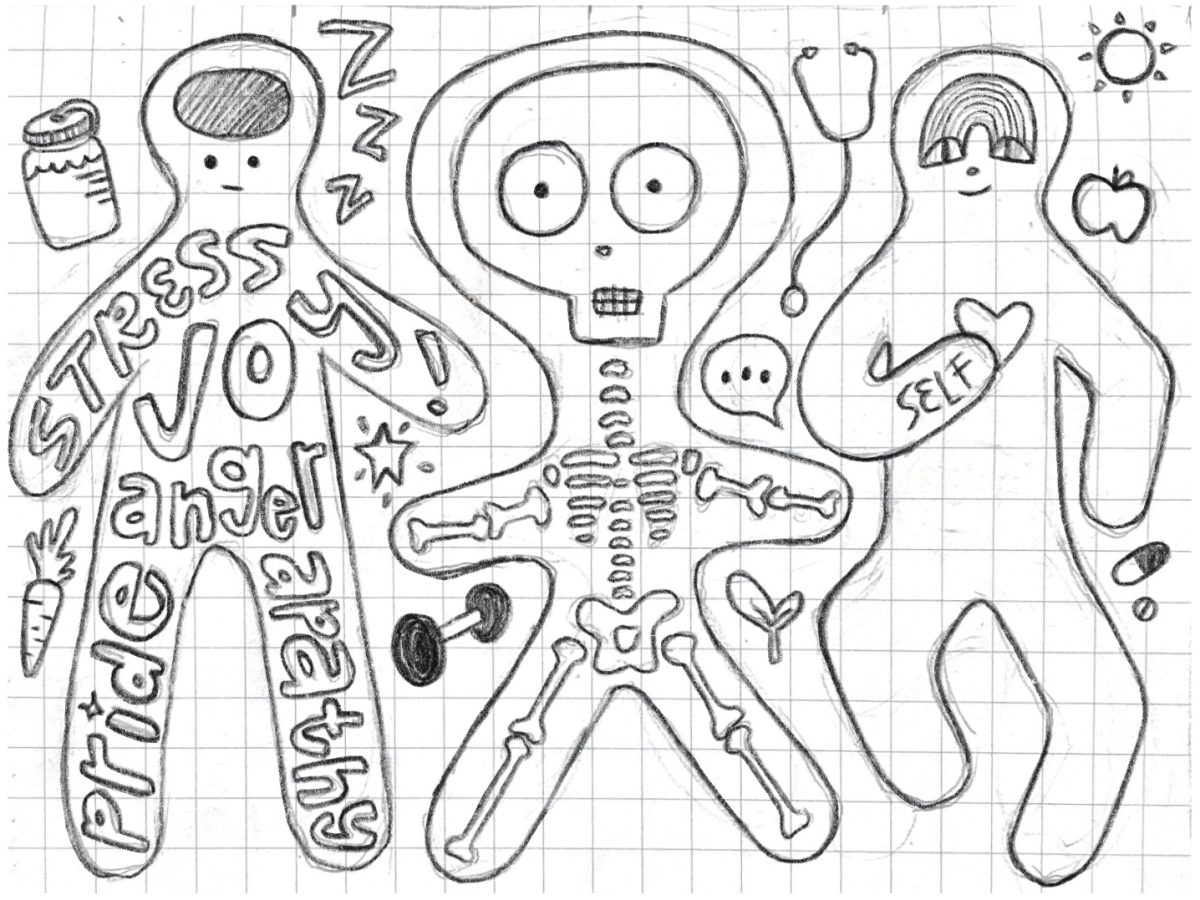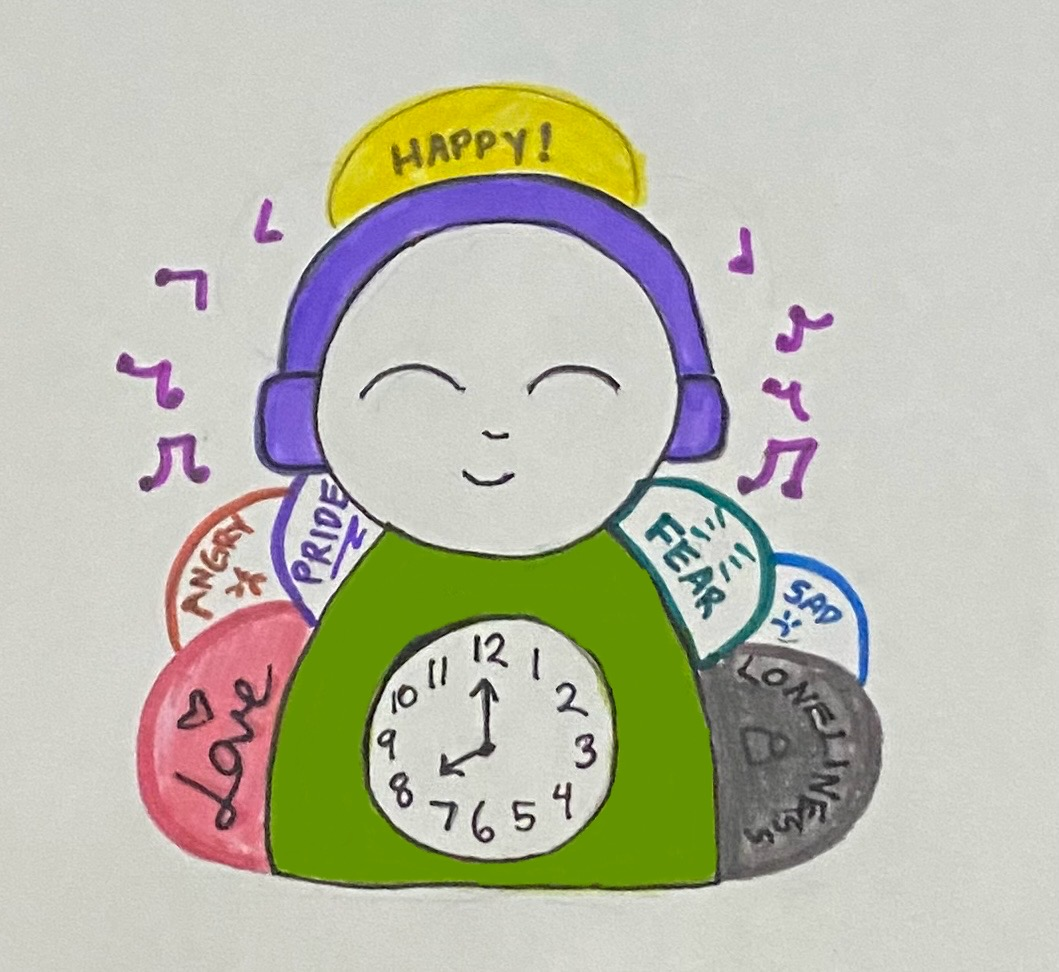From the minute we wake up to the minute we fall asleep, music changes our experiences and perceptions. Music is a compelling force that influences our mood, productivity, and energy levels. But why does music affect us the way it does?
Different types of music can alter brain activity, physical performance, and emotions. Music activates the brain’s limbic system, which controls memory and emotions. Starting your day with upbeat music can boost serotonin and dopamine—neurotransmitters that improve happiness and motivation. Songs with a tempo between 120 and 150 beats per minute can help wake you up by increasing alertness and engaging the brain’s motor cortex, making it easier to get going. Additionally, your movement naturally syncs with music, raising your heart rate and making exercise feel more enjoyable. The best exercise songs are the ones with motivational lyrics and positive themes that can inspire confidence and productivity in your daily life. Ariane Chandumont (‘27) says her favorite song to listen to while exercising is Fancy by Drake because it contains a catchy upbeat track that makes running in Central Park more fun. She says that Fancy makes her run faster because she “matches her pace with the fast tempo of the song.”
The right music in the morning can totally change how you feel and set the tone for your day. Instead of dragging yourself through your commute, an energetic playlist can wake you up, boost your motivation, and get you ready to do anything. Whether it’s upbeat pop, funk, or hip hop, a strong beat and lively notes help get rid of sleepiness and put you in a good mood. Listening to party music at the ripe hour of 7am makes me so much more excited to go to school, as I realize life is not that serious and that I should have fun. Fast-paced music naturally boosts dopamine and adds a little excitement to even the slowest mornings. With the right songs, you’re not just commuting to school—you’re starting your day with purpose.
However, when we need to release stress in order to focus on homework or studying, certain types of music work better than others. Lyrics can be distracting, especially when you’re studying or tackling a task. That’s where instrumental music comes in, like chill lo-fi beats, classical music, or ambient sounds. These genres create a steady background rhythm and encourage the release of GABA, a neurotransmitter that promotes calmness and focus. Relaxing music can also help lower cortisol, a stress hormone, making it easier to stay engaged without feeling overwhelmed. A good playlist with steady background rhythms can make studying feel less like a chore and more like a smooth flow, helping you stay focused longer.
The limbic system receives a signal to relax when you listen to slow, gentle music. Relaxing music, whether it’s jazz, acoustic, or ambient, can reduce tension and even enhance the quality of sleep. Perhaps the key to falling asleep more quickly is a playlist to listen to before bed. Music can help you wind down, just as it can wake you up.
It’s crazy how much music can shape your day without you even realizing it. Ever put on a song and suddenly feel unstoppable? Or hear an older favorite tune and get hit with a wave of nostalgia? Music has that kind of power—it sets the mood, fuels your energy, and sometimes even saves a rough day. Personally, I’ve lost count of how many times the right song has completely turned things around for me. So next time you hit play, pay attention to how it makes you feel. You might be surprised at just how much music influences your mindset.





















